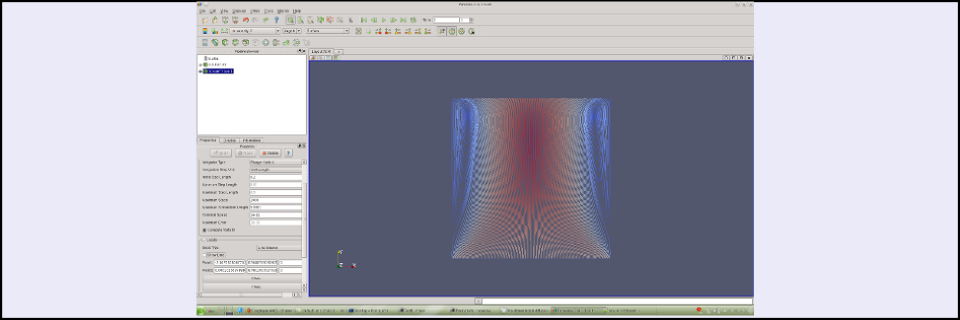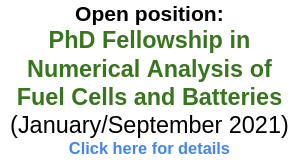Released 0.3 (Dec. 2016)
OpenFCST will aim at providing one release every year. Each OpenFCST release will contain the applications, physical models and material property classes that the OpenFCST developers have published during the previous year. If you would like a more recent version than the one online or you would like the OpenFCST developers to develop new routines for your research laboratory, please contact us at the address below. Over the past year, OpenFCST developers have developed the followings:
- New micro-scale simulation capabilities (gas and electron transport as well as reactions) (M. Sabharwal, L. M. Pant, A. Putz, D. Susac, J. Jankovic, M. Secanell, "Analysis of Catalyst Layer Microstructures: From Imaging to Performance," Fuel Cells, 2016.)
- A two-phase flow model (saturation based)
- Compatibility patches so that it works with the newest releases of Ubuntu and OpenSUSE
- New graphical user interface (GUI)
Released 0.2 (April 2015)
List of release highlights:
- New graphical user interface (GUI)
- Non-isothermal membrane electrode assembly model (see M. Bhaiya, A. Putz and M. Secanell, "Analysis of non-isothermal effects on polymer electrolyte fuel cell electrode assemblies", Electrochimica Acta, 147C:294-309, 2014. DOI: 10.1016/j.electacta.2014.09.051)
- Double-trap kinetic model available (see M. Moore, A. Putz and M. Secanell, "Investigation of the ORR Using the Double-Trap Intrinsic Kinetic Model", Journal of the Electrochemical Society 160(6): F670-F681. doi: 10.1149/2.123306jes)
- Multi-scale framework for analysis of complex agglomerate structures available (see M. Moore, P. Wardlaw, P. Dobson, J.J. Boisvert, A. Putz, R.J. Spiteri, M. Secanell, "Understanding the Effect of Kinetic and Mass Transport Processes in Cathode Agglomerates", Journal of The Electrochemical Society, 161(8):E3125-E3137 DOI: 10.1149/2.010408jes)
- Improved compilation script and transition to CMake: OpenFCST will automatically look for all dependent libraries and will automatically download any missing libraries if necessary. (Installation tested nightly in OpenSUSE 12.3 and Ubuntu 14.04)
- Improved documentation: Improved user guide and folder with input files for several of the articles above.
- Improved post-processing capabilities: New classes developed to be able to output oxide coverage, agglomerate effectiveness, relative humidity, overpotentials and more.
- Improved post-processing capabilities: New classes to compute functionals such as overall current density and all types of heat losses.
Coming up next... Release 1.0
OpenFCST will aim at providing one release every year. Each OpenFCST release will contain the applications, physical models and material property classes that the OpenFCST developers have published during the previous year. If you would like a more recent version than the one online or you would like the OpenFCST developers to develop new routines for your research laboratory, please contact us at the address below. Over the next year, OpenFCST developers will continue to be hard at work. The OpenFCST developers are currently developing:
- A Navier-Stokes solver for gas transport in the fuel cell channels
- A Brinkman solver for gas transport in the fuel cell porous media
- Re-implementing the main architecture to be able to solve problems in parallel using MPI and PETSc solvers
- A two-phase flow model for the porous electrodes
- Functionally-graded electrode optimization capabilities
- A transit PEMFC model



 Johnson Matthey
Johnson Matthey Automotive Fuel Cell Cooperation Corp.
Automotive Fuel Cell Cooperation Corp. Natural Science and Engineering Research Council of Canada
Natural Science and Engineering Research Council of Canada Catalysis Research for Polymer Electrolyte Fuel Cells
Catalysis Research for Polymer Electrolyte Fuel Cells